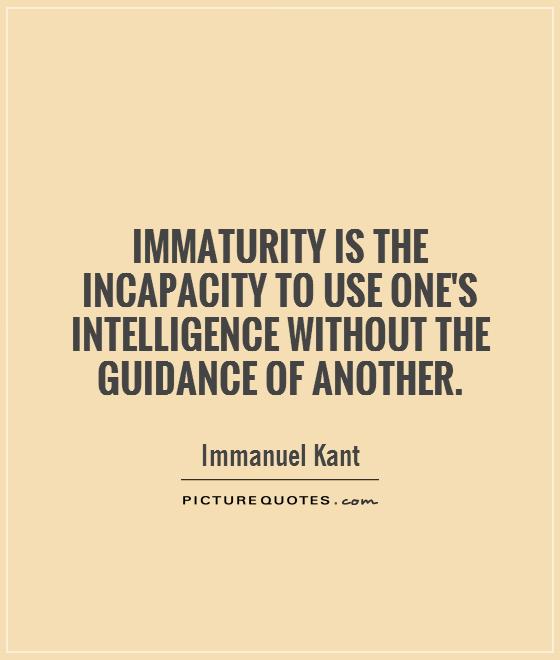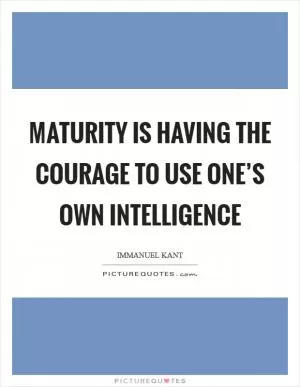Immaturity is the incapacity to use one's intelligence without the guidance of another

Immaturity is the incapacity to use one's intelligence without the guidance of another
Immanuel Kant, a renowned German philosopher, once stated that "immaturity is the incapacity to use one's intelligence without the guidance of another." This profound statement by Kant sheds light on the importance of intellectual independence and maturity in the pursuit of knowledge and understanding.Kant believed that true intellectual growth and development can only occur when individuals are able to think for themselves and rely on their own reasoning and judgment. Immaturity, in this context, refers to a state of dependence on others for guidance and direction in one's thinking and decision-making processes. It is a lack of autonomy and self-reliance in the realm of intellectual pursuits.
In today's fast-paced and information-saturated world, the ability to think critically and independently is more important than ever. With the constant influx of information and opinions from various sources, it is crucial for individuals to be able to discern truth from falsehood, fact from fiction, and make informed decisions based on their own reasoning and judgment.
Immaturity, as Kant describes it, can manifest in various ways. It can be seen in individuals who blindly follow the opinions of others without questioning or critically evaluating them. It can also be observed in those who lack the confidence or ability to form their own opinions and beliefs, instead relying on external sources for validation and approval.
On the other hand, intellectual maturity is characterized by the ability to think critically, analyze information, and make informed decisions based on one's own reasoning and judgment. It involves the willingness to question assumptions, challenge conventional wisdom, and seek out new perspectives and ideas.












 Friendship Quotes
Friendship Quotes Love Quotes
Love Quotes Life Quotes
Life Quotes Funny Quotes
Funny Quotes Motivational Quotes
Motivational Quotes Inspirational Quotes
Inspirational Quotes